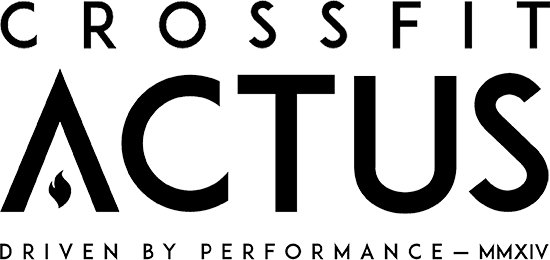Nutrition is the cornerstone of good health. As a gym owner, as much as it pains me to admit it, it’s more important to eat properly than exercise. A well-balanced diet fuels your body, sharpens your mind, and lays the foundation for long-term wellness. But with so much conflicting advice, how can you be sure you’re on the right track? Let’s simplify it. Here are the essential keys to solid nutrition that anyone can incorporate into their life.
1. Emphasize Whole Foods
Whole foods—like fresh vegetables, fruits, lean proteins, whole grains, and healthy fats—should form the backbone of your diet. These foods are nutrient-dense, meaning they provide more vitamins, minerals, and fiber per calorie compared to processed options.
Why it matters: Whole foods are free from excess sugar, unhealthy fats, and preservatives that can undermine your health.
Quick Tip: Fill at least 80-90% of your plate with whole, unprocessed foods.
2. Balance Your Macronutrients
Your body needs a mix of macronutrients—carbohydrates, proteins, and fats—to function optimally. Each plays a vital role:
- Carbohydrates provide quick energy.
- Proteins support muscle repair and immune health.
- Fats aid in hormone production and brain function.
Why it matters: A balanced macronutrient intake helps maintain energy levels, supports body composition goals, and keeps you feeling satisfied.
Quick Tip: Aim for a balance with every meal: a palm-sized portion of protein, a fistful of carbs, and a thumb-sized amount of healthy fats.
3. Prioritize Portion Control
Even healthy foods can lead to weight gain if eaten in excess. Learning to listen to your hunger cues and practicing mindful eating can help. Don’t eat like you don’t care. Be aware of what you’re putting in your mouth.
Why it matters: Overeating, even nutritious foods, can strain your metabolism and lead to fat gain.
Quick Tip: Eat slowly and be mindful. Stop when you’re full.
4. Stay Hydrated
Water is essential for every bodily function, from regulating temperature to aiding digestion. Dehydration can lead to fatigue, headaches, and even poor concentration.
Why it matters: Proper hydration supports metabolism and helps flush out toxins.
Quick Tip: Drink at least 8-10 cups or 2.5L of water daily, and more if you’re active. My best advice would be to purchase a large 2L water bottle and fill it once at the beginning of every day. If it’s not empty at the end of the day you messed up.
5. Limit Processed Foods and Added Sugars
Highly processed foods and sugary treats can derail your health goals. They’re often calorie-dense but nutrient-poor.
Why it matters: Excessive sugar and trans fats can lead to weight gain and overconsumption, energy crashes, and chronic diseases like diabetes.
Quick Tip: Check food labels for hidden sugars and trans fats. Stick to foods with short, recognizable ingredient lists.
6. Plan and Prepare Ahead
Consistency is key to solid nutrition. Meal planning and prep ensure you have healthy options on hand, reducing the temptation to grab convenience foods.
Why it matters: A little planning goes a long way in helping you stay on track, even on busy days.
Quick Tip: Batch-cook meals on weekends and pack snacks like nuts or fruit for on-the-go nutrition.
7. Make it Sustainable
A diet that’s too restrictive is hard to stick to in the long term. Instead of focusing on perfection, aim for progress. Allow room for indulgences, but keep them occasional.
Why it matters: A sustainable approach ensures lasting results and prevents burnout or yo-yo dieting.
Quick Tip: Follow the 80/20 rule: Eat well 80% of the time and allow for flexibility the other 20%. However, as you age you won’t be able to get away with as much slack so the 90/10 rule becomes a lot more applicable.
8. Listen to Your Body
Nutrition is not one-size-fits-all. Your energy levels, digestion, and overall well-being are valuable indicators of whether a diet is working for you.
Why it matters: Tuning into your body’s feedback ensures you’re meeting your unique needs. For example, broccoli is a very nutritious food but still might have a hard time digesting it.
Quick Tip: Keep a food journal to track what works and adjust accordingly. The right food for you will make you feel energetic. The wrong food is likely to send you running for the bathroom, gassy and bloated.
Final Thoughts
The CrossFit methodology for nutrition is very simple “Eat meat and vegetables, nuts and seeds, some fruit, little starch, and no sugar” . It’s very simple and quite effective. However, eating 0 sugar 100% of the time is not realistic. Saying “no” to cake at a birthday is not a great feeling. However, saying “yes” all the time is going to get you into trouble as well. Building a balance where you make some sacrifices but still enjoy social gatherings is very important for sustainability and your mental state.
Solid nutrition doesn’t have to be complicated. By focusing on whole, balanced meals, staying hydrated, and maintaining consistency, you can set yourself up for success. Remember, the best diet is the one you can stick to and that supports your overall well-being.
What’s your next step? Take a moment to evaluate your current eating habits. How do you think you’re doing? Which of these keys can you start implementing today? Small changes lead to big results. If you need some help, feel free to reach out.

